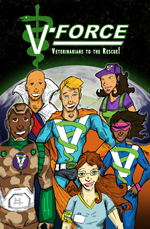 |
| Ed Yong (image from Not Exactly Rocket Science) |
Most people aren’t going to read the original studies for all the science they’re interested in. This is partly because it’s hard to keep track on your own of everything that's happening in the world of science and partly because not everyone has access to all the brand-new studies and partly because not everyone can understand them. (I understand some of them in some fields, but there are certainly more out there that I don’t fully get than that I do.)
So we rely on science journalists (and video makers and podcasters and others). We rely on these people to find the interesting stories. We rely on them to tell us why the stories are interesting. And we rely on them to put the right spin on the story: to not blow it out of proportion.
Ed Yong excels at all three of these things. He says that he covers “the wow beat,” meaning stories that are weird and unexpected. But he covers the usual fare as well, and he does so exceptionally well. He finds the humor and keeps you reading, but he doesn’t fall prey to the temptation to suck you in by over-hyping the story he’s covering. He puts the story in the right context, and that’s just really hard to do for someone who isn’t a researcher in the field. Ed isn’t a researcher in any field and yet he manages to cover many fields with insight and panache.
Yesterday Ed published a story in which he covered a recent paper about where dogs were domesticated. Most journalists cover these papers (which come out several times a year) with the breathless report that now, finally, we have found the birthplace of the dog! Ed, however, takes a step back and tells us how this newest paper fits into the long history of other papers which have pinpointed the origin of the dog on several continents and across tens of thousands of years.
I forwarded the story to a fellow graduate student, who reads dog papers every week with me and who does her own research into canid domestication. She commented: “He is my new favorite science writer - totally nailed it.”
- Twitter: @edyong209
- The Atlantic
- Not Exactly Rocket Science (blog)


